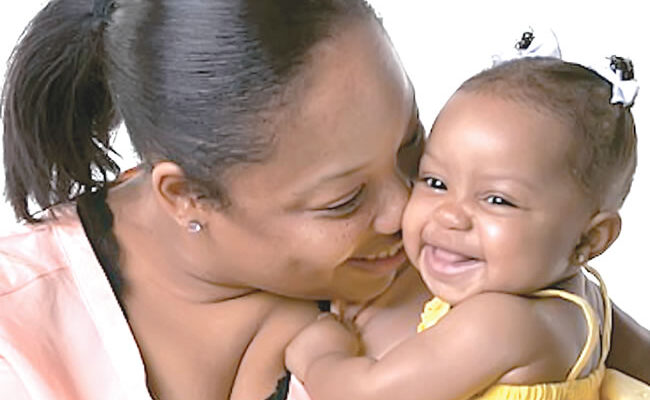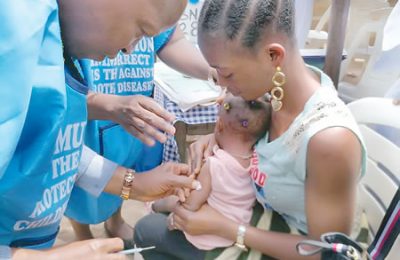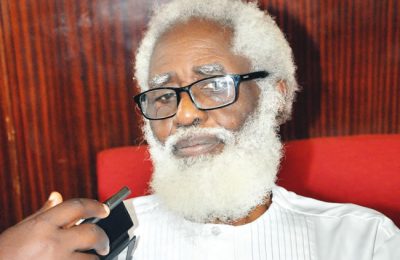Contrary to what many mothers know, Aderonke Akinola-Akinwole, a Social and Behaviour Change Specialist at UNICEF, has said vaccination now ends at age 9 for girls because of the inclusion of HPV into the routine immunization schedule.
She stated that the specific schedule of vaccines to deliver to children from birth to 15 months had been expanded to include the HPV vaccine to ensure the girl-child is also protected from HPV, a germ that causes over 90 percent of cervical cancer in women in later life.
Akinola-Akinwole, speaking at a two-day media dialogue with the theme “Achieving the Health Sector SDGs for over Two Million Children at Risk of Death in Nigeria,” said unlike boys whose vaccination schedules end by 15 months after taking the second dose of the measles vaccine, a girl’s last vaccine dose is at 9 years when she takes the HPV vaccine.

The vaccines currently on the Nigerian National Programme on Immunization include BCG, which protects against severe forms of tuberculosis; Oral Polio Vaccine (OPV), which protects against polio that can cause paralysis and death; and Hepatitis B Vaccine, which protects against hepatitis B virus infection, which causes liver disease, cancer, and death.
In addition, the pentavalent vaccine contains 5 vaccines—Diphtheria, Pertussis, Tetanus toxoid, Haemophilus influenza type B, and Hepatitis B—and protects against diphtheria, whooping cough, tetanus, hepatitis B virus infection, and other infections like pneumonia, meningitis, and ear infections.
Also is the rotavirus that protects against diarrhea in children; the measles vaccine protects against measles infection, and the yellow fever vaccine protects against yellow fever infection. However, vitamin A is also given as a supplement that boosts immunity against infectious diseases and protects against blindness.

Akinola-Akinwole stated that until December 2024, girls between the ages of 9 and 14 will also be given the opportunity to take the HPV vaccine in a bid to ramp up on those who might have been missed during its earlier introduction into the Expanded Immunisation Programme.

“But from January 2025, the vaccination age for HPV vaccines would be nine years for girls, and they would be required to come back to the primary healthcare centre for the vaccine,” she said.
She declared that when mothers ensure their girl child takes the HPV vaccine at 9, they are saying yes to a healthy future for the girl child and a future free from cervical cancer.
“When HPV was launched, it came with a lot of misconceptions, myths, and rumours that deterred people from receiving or demanding the vaccines. But so far, within the Southwest, after the second phase of the launch, all your states came out top with over 95% of coverage,” she said.
Akinola-Akinwole also called on mothers to ensure their babies at 15 months get the second dose of the measles vaccine, saying awareness of children requiring a second dose of the measles vaccine at 15 is poor.
She said experts have found that the first dose of measles vaccine they receive does not guarantee lifelong immunity, and so the second dose, which is a booster dose, helps ensure they are protected.
Also, the WHO recommendation is 2 doses of the measles vaccine to prevent outbreaks and ensure herd immunity. Two doses provide long-lasting immunity, reducing the risk of measles complications and transmission.
Immunisation Programme Coordinator for the Lagos State Public Health Board, Dr. Adetona Akinpelu, in a reaction, declared that cervical cancer is the second most common cancer in females, but people may not be aware of this because they do not see women that have these diseases.
According to Dr Akinpelu, across the country, every year, we have over 100,000 women who die from cervical cancer.
He added that the human papillomavirus is one of the major precursors that lead to cervical cancer, and about 95% of all cervical cancer cases are linked to the virus, making the HPV vaccine the first level of protection you can give against cervical cancer in girls.
“So if we can vaccinate against it, it means that we’ve taken the fight to preventing cervical cancer. This is based on the data that has been gotten from other countries that have instituted this human papillomavirus vaccine as part of a routine, and we’ve seen that it has reduced the incidences of cervical cancer, so this is also a unique opportunity for Lagos State and Nigeria as a whole to benefit from this,” he added.
Dr. Akinpelu assured me that vaccines are safe and efficacious and the best gift you can give children to prevent diseases in the future.
He declared that one of the biggest challenges to vaccination campaigns are rumours, myths, and misconceptions, urging media support to get the right information to Nigerians in support of vaccination and make Nigeria free of vaccine-preventable diseases.
READ ALSO: Flood: 11 dead, 41,192 displaced in three Niger LGAs








